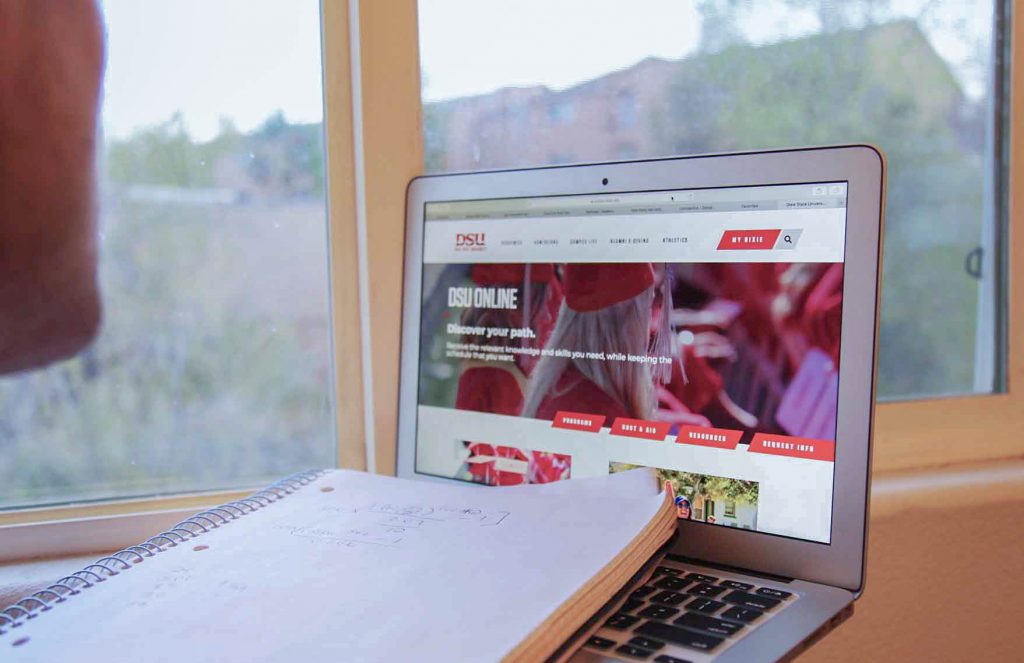Now that it’s nearing the end of the school year, you might be panicking about your grades. It’s crunch time, and for a lot of us, now is the time when we start desperately asking our professors what we can do for a better grade.
Katie Armstrong, director of college advisement and general education adviser, said: “Students should feel like they can talk to their professor about grades. I don’t think negotiating is the right word, but they should have an open and honest conversation.”
Here are the do’s and don’ts of communicating with your professors about your grades:
What to DO when asking a professor to change your grade
Mike Peterson, department chair and assistant professor of English, said one of the best ways to get a professor to open up about changing your grade is to go into it being kind and open.
“It’s the age old rule that you catch more flies with honey than vinegar,” Peterson said. “Treat your professor like a human being; don’t come in ready to fight or accusatory.”
Peterson also said don’t go in threatening to report them to the dean or department chair because it puts the professor in a defensive position.
Stacey Koller, general education adviser and English professor, said in addition to being nice to your professor, you should go into this process by asking if the professor can talk to you beforehand.
“Ideally, the student will come to your office hours or schedule an appointment,” Koller said. “If I know it’s coming, it’s much more welcome.”
As students, you need to remember that professors are also really busy, so allowing the professor to have time for the student is important, Koller said.
Finally, one of the most important parts is coming prepared to explain why you deserve a higher grade, Peterson said.
“It’s kind of like a legal case,” Peterson said. “You have the burden of providing the proof; it’s not the professor’s job to prove that they were right, it’s the students job to provide the evidence.”
Examples of evidence to have is assignments you can show, rubrics, instructions and other work to compare yours to in order to prove you’ve been working hard, Peterson said.
What NOT to do
Armstrong said students have to think about why they got the grade, and they need to take responsibility for those reasons before they can convince the professor to consider their situation. She said the student needs to go into the conversation with a desire to understand why they got the grade, not to blame the professor for their grade.
“You don’t want to accuse the professor of cheating [you] out of a proper grade, even if you think that’s what happened,” Armstrong said. “Being accusatory can cause a lot of issues and completely stop the conversation.”
Peterson said the student shouldn’t rely on emotions, but rather rely on the evidence. A professor can’t change your grade if your only reason is that you need a higher grade, he said.
“I’ve had students who have come to my office and asked for a higher grade with nothing more than a sob story,” Peterson said. “While all that tugs at my heart strings, there’s nothing I can do about it; they’ve got to provide more solid arguments, or else there’s nothing I can do about it.”
Peterson said along with avoiding emotional evidence that the students need to avoid coming up with stories to try and get a better grade, especially when talking to a department chair about a professor not making a student’s grade better.
“My advice, if you’re going to go to a department chair, be completely transparent and honest,” Peterson said. “Don’t paint a very one-sided picture because it only takes us a couple minutes to get the complete story.”
Resources to use for help
Koller said DSU has resources that students can utilize right now to try to prevent their grades from getting worse, and to prove to their professors that they are working to get a better grade.
“I would start with an adviser, but our Academic Performance Center of course,” Koller said. “Whatever the subject is, especially as a sophomore and freshman, there is probably a place where they can get free tutoring.”
Koller said if a student has a feeling that the cause of their difficulty in a course is because of an underlying reason, they can also reach out to the Disability Resource Center for extra help.
Armstrong said she recommends reaching out to OMBUDS if a student is having a hard time working with a professor or needs a mediator for that situation. It is a confidential program that can assist students and faculty in working out conflicts, and it can offer assistance when asking a professor about grade changes, Armstrong said.
Koller said usually when a student at this point in the year is struggling across the board and at risk of losing their scholarship, there isn’t much they can do about that situation. She said sometimes you just live and learn, but always try to reach out for help.
Koller said if worst comes to worst, the student can always appeal a lost scholarship if there is an underlying situation going on such as a mental or physical health problem.
“So many people are happy to help if they know you need it,” Koller said. “Don’t be afraid to ask for help.”




